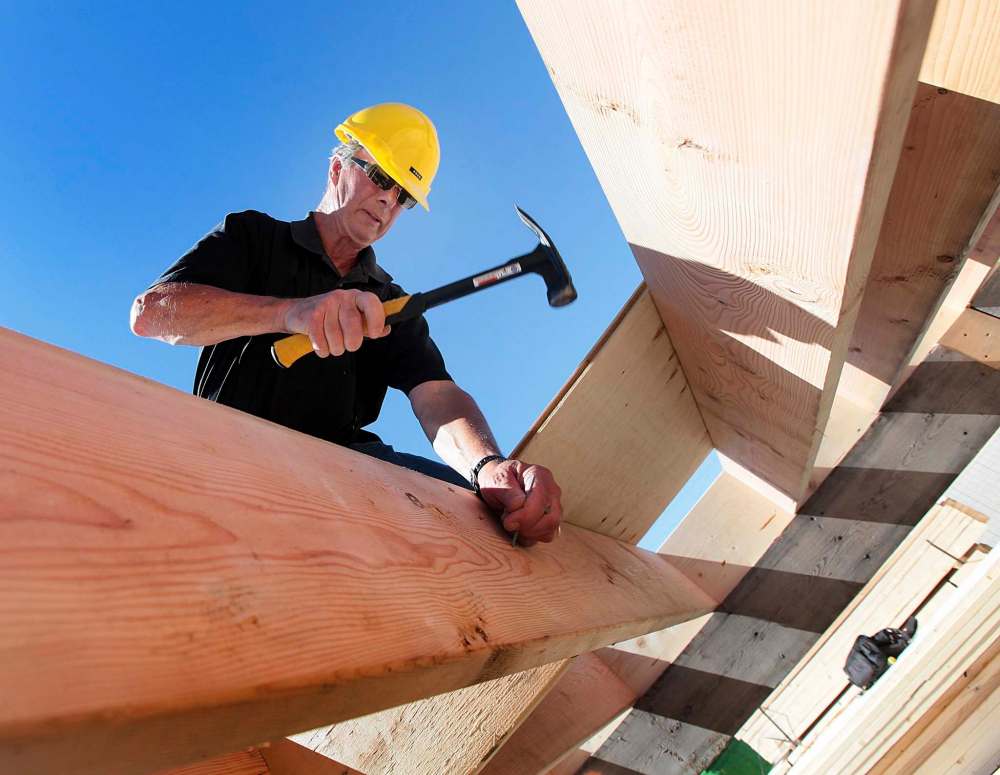Impact fees topple expectations
Advertisement
Read this article for free:
or
Already have an account? Log in here »
To continue reading, please subscribe:
Monthly Digital Subscription
$0 for the first 4 weeks*
- Enjoy unlimited reading on winnipegfreepress.com
- Read the E-Edition, our digital replica newspaper
- Access News Break, our award-winning app
- Play interactive puzzles
*No charge for 4 weeks then price increases to the regular rate of $19.00 plus GST every four weeks. Offer available to new and qualified returning subscribers only. Cancel any time.
Monthly Digital Subscription
$4.75/week*
- Enjoy unlimited reading on winnipegfreepress.com
- Read the E-Edition, our digital replica newspaper
- Access News Break, our award-winning app
- Play interactive puzzles
*Billed as $19 plus GST every four weeks. Cancel any time.
To continue reading, please subscribe:
Add Free Press access to your Brandon Sun subscription for only an additional
$1 for the first 4 weeks*
*Your next subscription payment will increase by $1.00 and you will be charged $16.99 plus GST for four weeks. After four weeks, your payment will increase to $23.99 plus GST every four weeks.
Read unlimited articles for free today:
or
Already have an account? Log in here »
Hey there, time traveller!
This article was published 29/08/2018 (2666 days ago), so information in it may no longer be current.
Revenue collection from the new impact fee on suburban residential development continues to exceed the City of Winnipeg’s projections.
City hall has pocketed almost $11 million for the first six months of the year, matching what civic finance officials had predicted would be generated for the entire 12 months of 2018.
The dollars collected appear to show how civic finance officials have repeatedly underestimated the pace of new suburban residential development, while revealing how industry leaders have exaggerated the impact the new fee would have on buyers.

“What is extremely disappointing is under Mayor (Brian) Bowman’s leadership, the city disregarded all proper industry best practices and rammed in the impact-fee structure, and now there is a large court battle underway,” Coun. Janice Lukes said Wednesday.
“None of this funding will be used for anything till the court battle is resolved, and this court battle is costing citizens. So, we really don’t know if the city can actually use this funding or not.”
Lukes was critical of how the fee was introduced in the face of strong industry opposition and no community consultation.
She said she doesn’t understand how finance officials continue to underestimate suburban residential growth. “Perhaps they are estimating on the lower end out of caution, as to not set expectations too high.”
An administrative report to Tuesday’s finance committee meeting says there were 1,209 residential permits issued in the six suburban areas where the impact fee applies, generating $10.966 million.
In the last eight months of 2017, after the fee went into effect May 1 of that year, the fee generated more than $4 million in revenue, more than doubling what city officials had predicted.
Lanny McInnes, president and CEO of the Manitoba Home Builders’ Association, said the higher revenues do not undermine the impact the fee has had on home buyers, but reveal the city has been conservative in its estimation.
“What we’ve seen is the number of permits and (housing) starts is down compared to last year,” McInnes said, adding other factors have also contributed to what he said is a slow year for new-home construction.
The impact fee was approved by council in October 2016, after a stormy debate between city hall and the new-home construction industry.
The initial rate in 2017 was $54.73 per square metre ($5,084 per 1,000 square feet). The city projected it was to have raised $2 million in revenue in the first year, and expected that number to climb to $11 million in 2018, with a full 12 months of construction activity.
There was an automatic five per cent increase in the fee amount effective Jan. 1. The fee increases annually, equivalent to the same percentage increase in construction inflation up to a maximum of five per cent.
The fee rate for 2018 is $57.47 per square metre ($5,330 per thousand feet).
The fee is supposed to offset city costs associated with services required as a result of new development, including recreational and leisure facilities, transit and other infrastructure.
Revenue from the fee is being placed in a reserve fund, pending the outcome of a legal challenge from the homebuilding industry.
The Urban Development Institute and the MHBA opposed the fee, and filed a legal challenge in January 2017, on the grounds the city doesn’t have the legal authority to impose the fee and the industry already pays for growth-related infrastructure.
Affidavits in support of the legal action were filed in December 2017. The case remains before the courts.
Similar charges for other types of development — industrial, commercial, office and institutional space — are supposed to come into effect in those same suburban areas no sooner than November, followed by charges for all development in all areas of the city by November 2019.
aldo.santin@freepress.mb.ca


